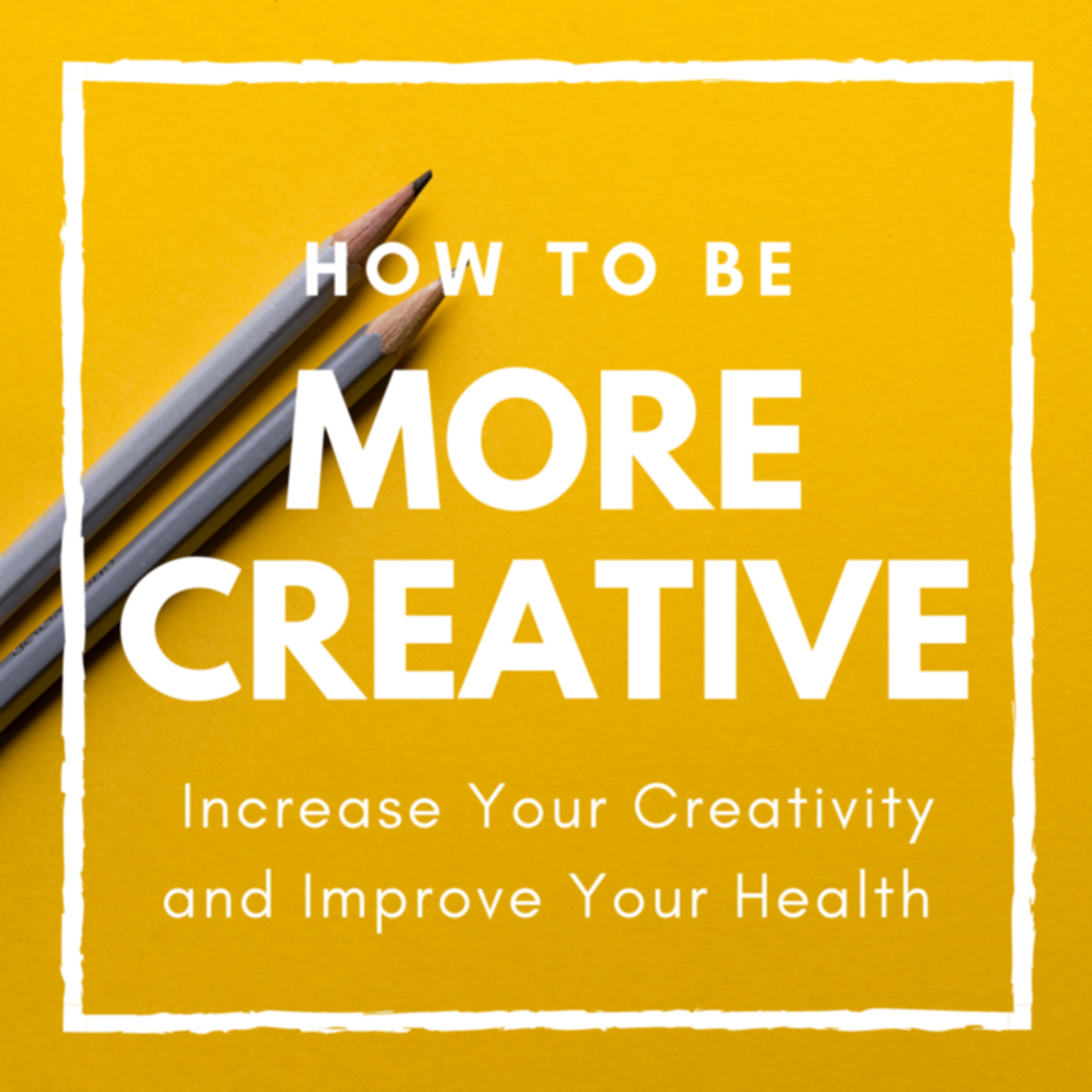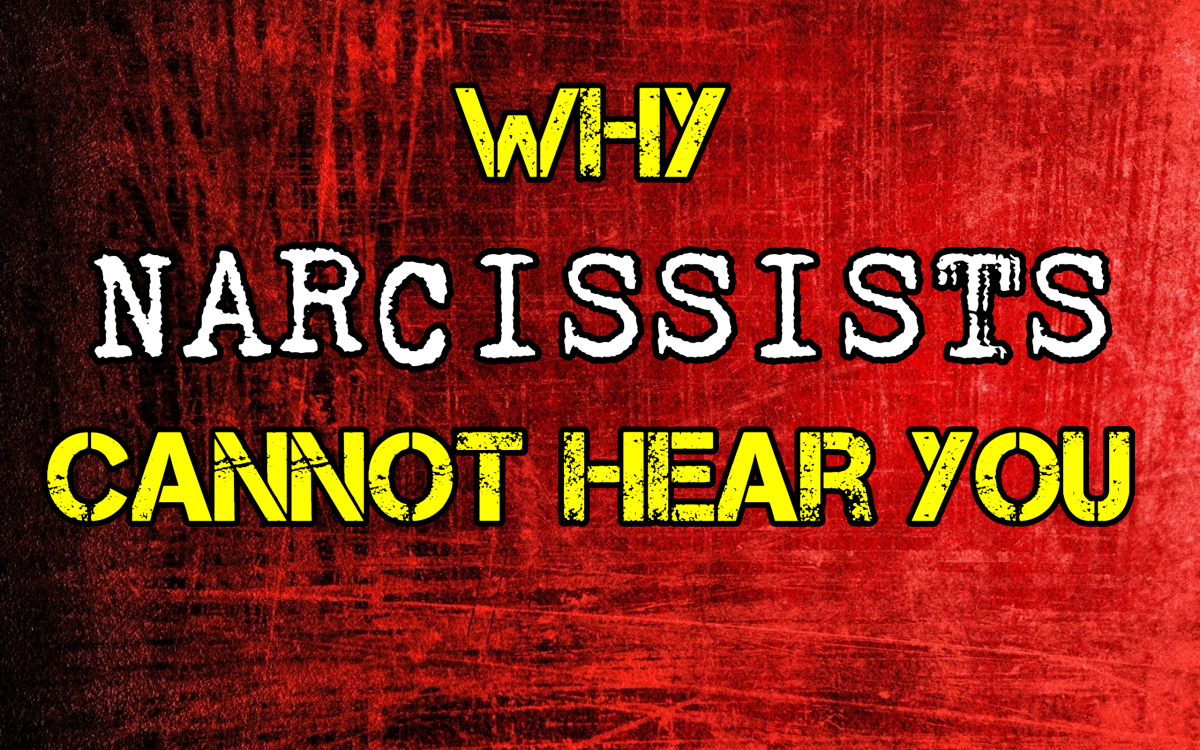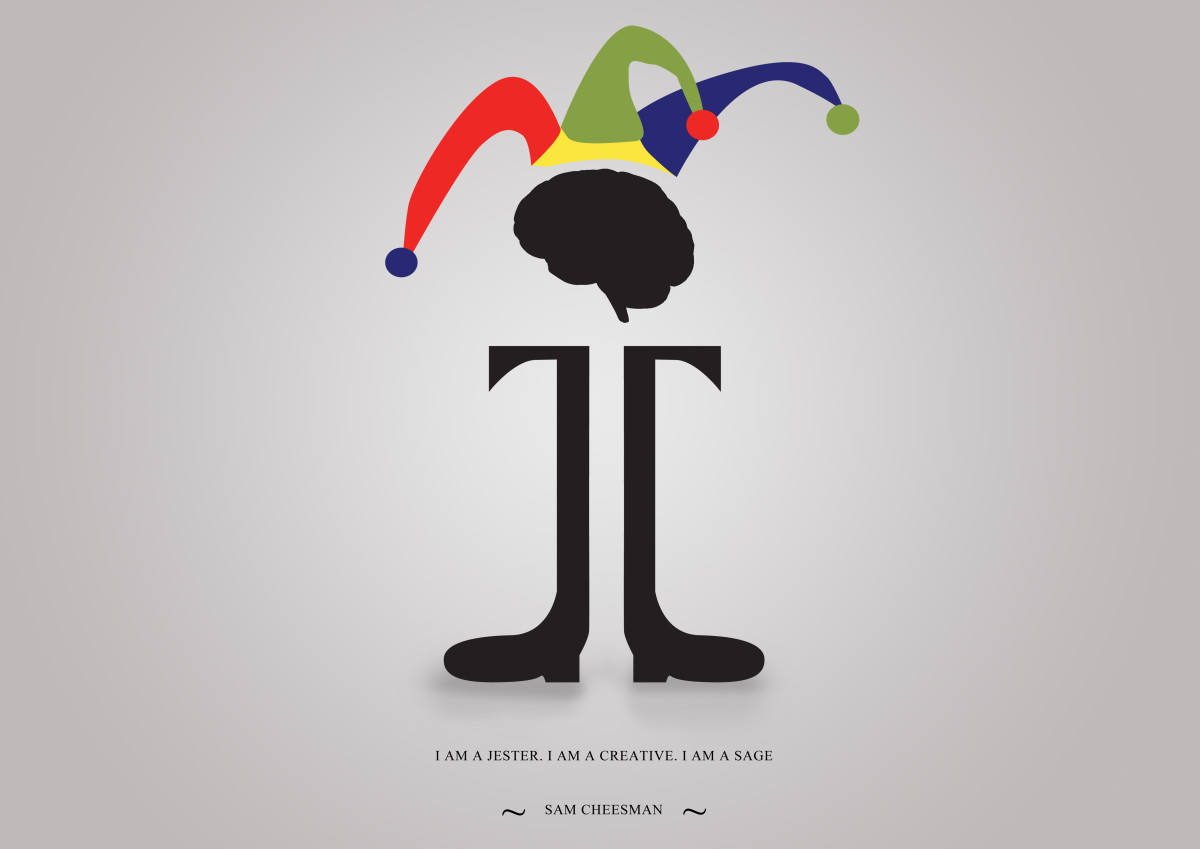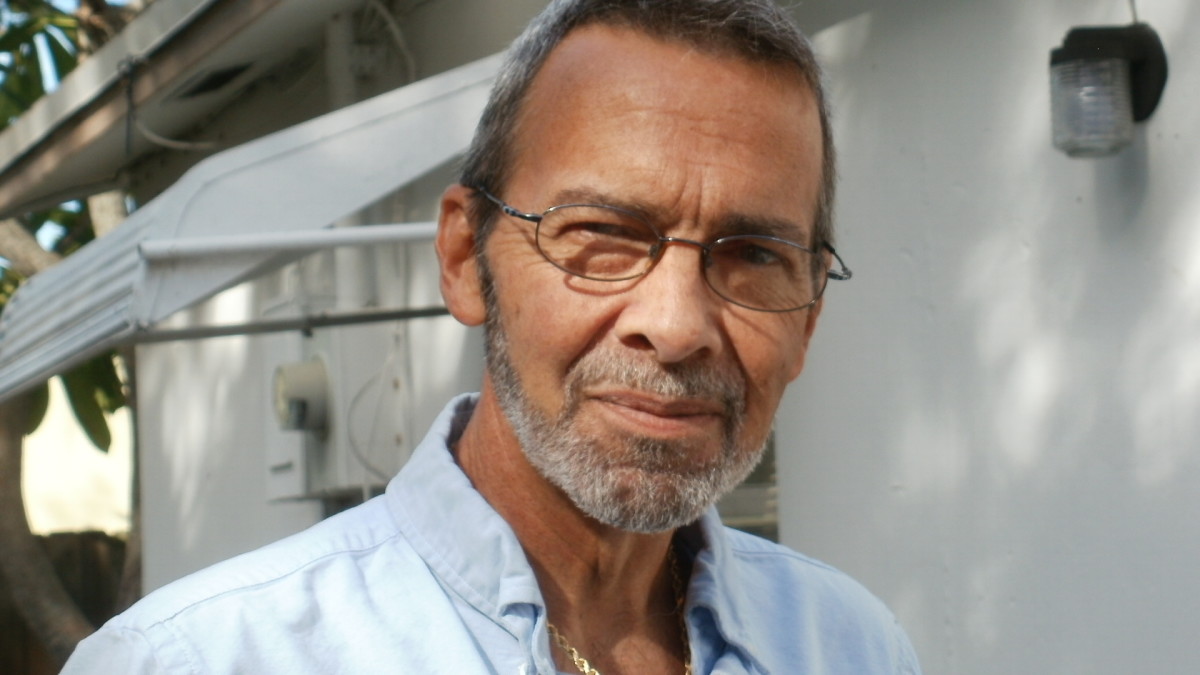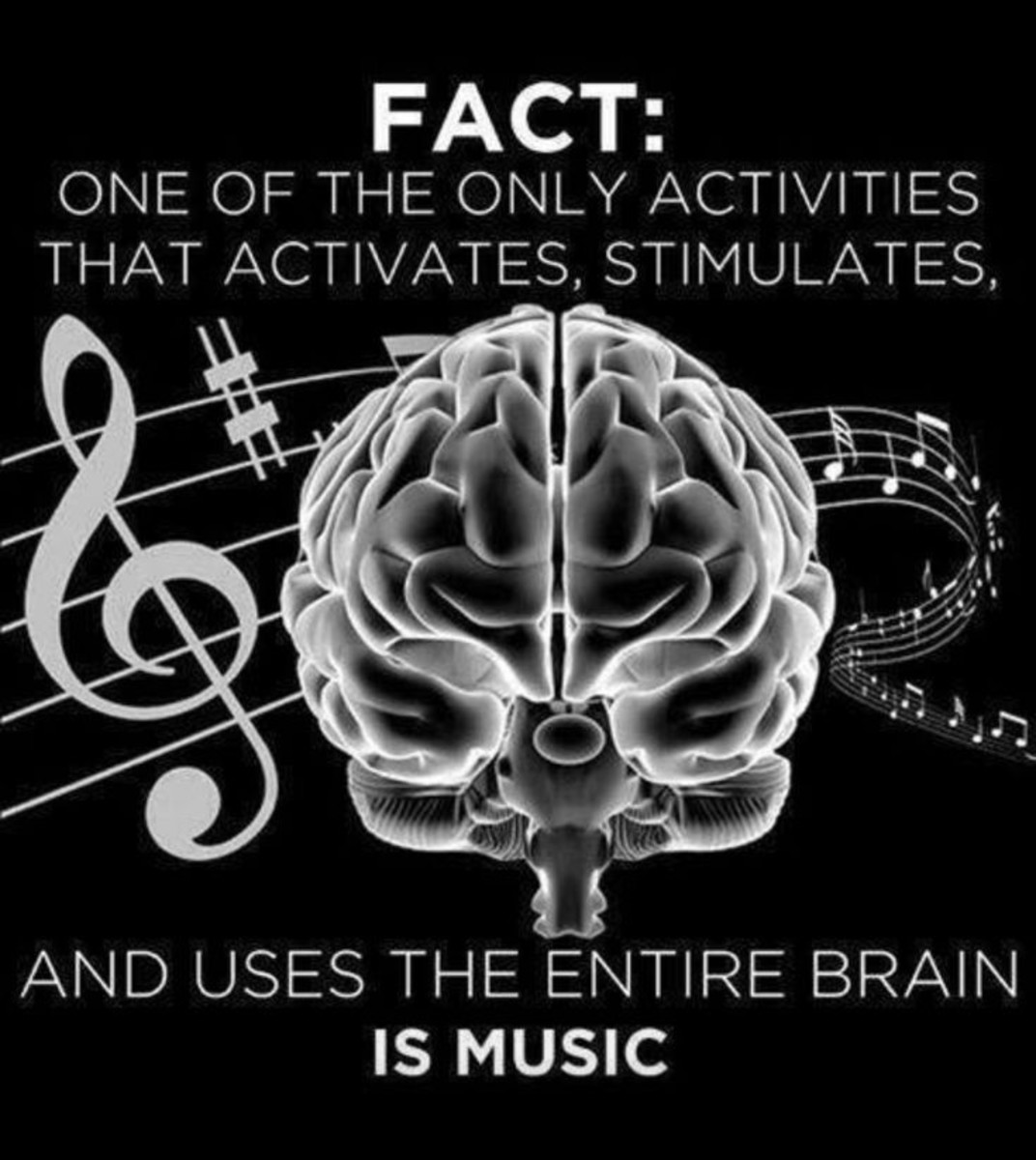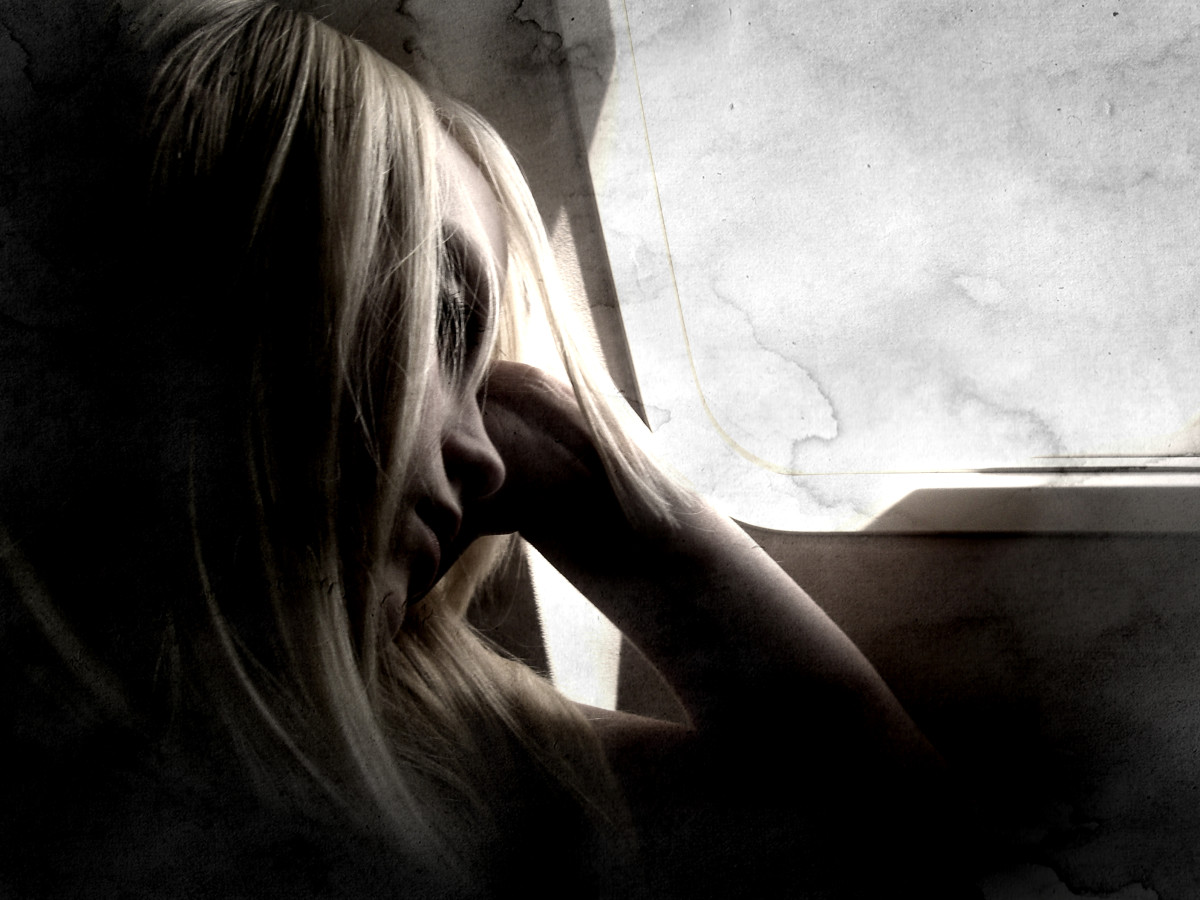The Creative and Artistic Mind - How is it Different?
I have been intrigued by the concept of the 'artistic mind' for a long time. As someone who has loved writing from a very early age, I find that creating poems, song lyrics and stories comes quite naturally. I do, however, often have difficulty with the more rational and logical side of life, I am fascinated to explore the differences that may be found in creative people. My whole family, even my oldest child, realise that I am not the person to ask when it comes to practical matters. I am terrible at assembling things (even toys for five year olds). Frequently, I find myself staring blankly at the instructions whilst unable to comprehend exactly what I am supposed to be doing. All this requires a totally different mindset as opposed to that called upon for creative pursuits. It involves focusing on and understanding a set of rules which must be followed in a precise manner - something which I am just not very good at.
Both my children know that I am apt to getting lost when driving to places I don't frequent very often, that I am disadvantaged when it comes to using and understanding technology (I hate getting new phones, for instance) and that I am good at misplacing various items which then turn up in odd places. I can, however, produce a reasonable poem in half an hour whilst barely thinking about it, if the moment is right. This is not something that I even know 'how' to do. It is just something that happens.
Where Does Creativity Come From?
I often wonder just where it is that creativity actually comes from. Researchers studying this fascinating subject have indicated that dominance in certain areas of the brain comes to the fore with the spontaneous birth of new ideas. At least one study suggests that these dominant areas are ignited even before creative work is underway - as though the brain is already 'geared up' or predisposed to 'thinking' in this way. Past widespread research has highlighted the view of the left-brained: right brained philosophy - those who use their right-brains more are supposedly more creative. However, this theory (based upon the idea of the split-brain and based on research into epilepsy) has been somewhat debunked in recent years. Instead, there is a new understanding that many creative processes are, in fact, the result of activity using the whole brain.
Thinking about it, this theory makes a lot of sense. After all, wherever an idea actually originates from, it takes far more than the idea itself (or even a talent) to bring a project into existence so that it might be shared with other people. For instance, music and mathematics are interrelated, even though mathematics is considered an analytical subject and music is a passionate and beautiful form of art. Organisational skills are very often required, otherwise an idea can only remain as just that - an idea. Still, it might take many areas of the brain to bring a creative idea to fruition, but the 'light' has to begin somewhere. Without the initial spark, there is nothing there at all.
During the writing of this article, I read an interesting piece published by Psychology Today, by Dan Goleman. I was particularly fascinated by the 'aha' moments, as referred to in the article. These moments refer to that feeling, during a creative project, when it feels as though a light has suddenly been switched on. It is a spontaneous process - we have (or feel we have) no idea how or why it happens at that precise moment. Often, we have been searching for it, willing it to come to us, for hours or even days. The answer; the birth of an idea; the missing element appears randomly, unexpectedly and sometimes at inopportune times. Apparently, moments such as this do come from the right brain, from the temporal area.
The article suggests that there is a gap between the initial consideration of a creative project (during which a process has unknowingly occurred within the brain) and that moment when the answer seems to spontaneously come to light. It suggests that, because our brain already knows we are seeking a solution, the process of finding one is quietly underway - until finally the 'light' comes on. Apparently, a short while before the idea is realised, heightened gamma activity occurs within the brain. Hence, according to the article in Psychology Today, the idea seems as though it has come out of the blue, but in actual fact, appropriate thought patterns were already a subconscious work in action.
I found this idea very interesting, but wasn't sure whether it was enough for me. It seems to support the birth of creative ideas that have already been considered - but what about those times when there is no creative project in the back of the mind - when the subject wasn't even looking for a creative solution? What about the moments when the beginning scene of a new story emerges, or the lyrics to a song, or the lines of a poem - when the person themselves did not even have an idea in progress? Creative people will know exactly what this is like - you are walking along, minding your own business and admiring the spring blossom on the trees, when suddenly - aha! - some words enter your headspace, just like magic, and they just happen to be the perfect opening for a new piece of fiction (for example). Does this mean that the brain has decided to go off on a tangent and do its own thing - without any prior consideration taking place? Or does it mean that these people's brains have become so used to searching for creative breakthroughs that they become 'wired' in a certain way, so that the whole creative process is almost ongoing in the subconscious? Another consideration is that the person has become inspired by something external - world events; a conversation; a beautiful scene or even the emotion in a song or film, without realising, so that the brain begins to search for a way to bring forth that inspiration, thus heightening gamma activity. It is undoubtedly pause for thought - and incidently, I am not a researcher or a psychologist, but merely debating ideas.
From my point of view, the truth is that it often feels as though creativity comes from nowhere at all. It really can feel as though it is a separate entity and has very little to do with training or learning. I have no idea whether one can learn to be a creative person. Whilst I can be creative, I do not know 'how' to be. I think that every single person in the world has the ability to express themselves through creativity and different forms of art - but I suspect that there are varying degrees of potential already determined in people, just like not everyone is cut out to be a surgeon, or a world leader, or a breakthrough scientific researcher. The beginnings of a creative idea, for me, always appear randomly. This can be both exciting and incredibly annoying, as without the appropriate means of recording an idea immediately, it can be instantly lost again. It is rather like a breath of fresh air that vanishes as soon as it arrives. Musicians who write their own music often carry around notebooks in order to prevent this from happening, since there is nothing worse than coming up with something brilliant and then forgetting it only moments later.
Whilst more logical and analytical projects may require a structured thought pattern - perhaps following a set of 'rules' before the solution is found - artistic projects are often almost the opposite. Instinct, intuition and a 'gut' feeling are the traits often used by creatives. Rules are annoying and restrictive (although thorough research is often necessary for creative projects, especially for novels and film). Somehow, art is pulled from what I think of as a 'space between'; a place where ideas flow and must be garnered. Unlike more analytical pursuits, creative thoughts and ideas are not dictated by the person, but instead seem to come when they please. During intense creative periods, there are many ideas flowing like a river into (or through) the mind. It is almost like a waterfall of jewels which must be caught and harnessed, otherwise they are gone forever. At other times, nothing comes at all no matter how hard one tries. Then, it is often better to leave it alone and return at a later date. The creative process cannot be forced, only encouraged with the right setting and by inspiration. It is almost as though the project - the art itself - dictates when it will be brought to life.
It does irritate me somewhat when schools dictate that students must (for example) compose a poem about a certain subject matter within the class environment and at a set time. This controlled setting, in my opinion, is not going to realise the potential of the vast majority of students. Creativity cannot always be instantly called upon, even by those at the top of their game. What's more, the class setting can be distracting, definitely not the best environment for the best ideas to flow. Sometimes there is the added pressure of having to finish the work in limited time period. But, that is just not how creativity usually works. I know I can't produce my best work under such conditions. Perhaps no ideas will even come along at all. My son has told me of a situation in English class when he was required to write a poem by the end of the lesson - and that he was then reprimanded for not finishing it within the hour. When I asked him why he hadn't finished it, he explained that he simply didn't know what to write at that time. Does this mean that he can't write poems? No, because on another occasion he has written brilliantly and his poem was chosen as the best of all. Creativity is not like other subjects. You cannot 'know it or not know it'. You can only become inspired and encourage it.
Sir Paul McCartney has claimed in the past that the melody for 'Yesterday' was already in his head when he awoke one day. I remember watching him discussing it during an interview on television, many years ago. It is a perfect example of the spontaneous birth of creative ideas - this time, seeming to occur during sleep. I have no doubt that Paul McCartney had little idea of how this now-famous song entrenched itself in his mind. I also know countless artistic people have no clue of how they create some of their best work. It really does just seem to come along on its own, sometimes.
Schott Study - Brain Malfunction and the Emergence of Creative Output
Recently, a new study has emerged that highlights the interrelation between physical changes in the brain (through accident or disease) and the spontaneous onset of creativity and even artistic brilliance. The research focusses on various conditions which cause brain deterioration in key areas, such as Alzheimer's, dementia and epilepsy - and sudden, increased or changing creativity. Often, these patients have had little previous passion or skill for artistics pursuits, and yet suddenly display abilities and enthusiasm as though it was a lifelong calling.
Damage to the temporal lobes and frontal brain regions can seemingly ignite creative passions that were never realised before. MRI results have shown that, in these people, there can be signifcant damage in these areas which coincides with increased creativity. Although interesting, it is rather different to the artist who has always had that passionate 'calling' - but what it does do is highlight the link to creativity and the brain itself.
Artistic People, Feelings and Depression
Are artistic people more prone to depression than those who are less creative? Well, I don't know about that. Sterotypical assumption often suggests that, yes, they are - although there are certainly plenty of depressed people about who would never class themselves as artistic. I do, however, think that being a creative person can definitely bring with it feelings of frustration, especially if there is a 'feeling' or idea which is in there somewhere, yet which seems 'stuck'. It can be demoralising if an artist feels they haven't reached their potential, or is facing constant rejection. Reaching potential is a personal thing - and the lack of a breakthrough over something that means so much can feel like a failing. Frustration and demotivation, however, is not the same as true, clinical depression, and we shouldn't confuse it as such.
Artistic people are often perfectionists. They can be their own worst critics, harder on themselves than any outsider might be. There is always something that could be better; always a step ahead to reach for. Every artist aspires to produce the 'masterpiece', yet in reality they are always reaching for it. They are not usually searching because of materialistic gain, but because of an innate need within themselves to create - a need that can't be completely separated from the rest of the persona.
Because of the very nature of what they do, artistic people have to access emotion and feeling in order to produce work. This is almost like turning inwards on oneself; reaching down into one's own soul in order to bring feelings to the fore for other people to experience. Have you ever noticed how singers often have their eyes shut? It is almost as though they are in another place; an internal place. Authors, poets, songwriters, comedians, singers, actors, screenwriters, painters - all of these professions involve instilling a feeling in others and producing a reaction. If this wasn't the case, there would be no audience, since nothing would be gained from sharing in the art.
So many songwriters write from the heart of their own experiences. They are like open books exposing a chapter in their lives. And even when they are not drawing directly from their own experiences, artistic people have to be good at understanding feelings in order to produce the desired response in others. Is this a trait that can perhaps make them a bit more vulnerable to negative emotions as well as positive? Perhaps creative people are sensitive to emotion all of the time, like an inbuilt characteristic? This leads to another question - are these types of people sensitive to emotion because they purposefully reach for it during the creative process - or does their natural predisposition towards heightened emotion incline them towards artistic pursuits? Whatever the answer, it is clear that emotion and feeling are very much linked with art in all forms - and that without it the audience response would be flat.
Artistic people who are lucky enough to be able to make a living from their craft can often have a very different structure to their days, compared with those who go out of the house to work set hours. Many work alone - at home or in a studio - with nobody else to distract them from themselves and from their projects. They keep their own hours and might work in fits and starts - because creative energy does not always flow rhythmically but has times of intensity followed by lulls. Without the structure and grounding of a 'nine-to-five' job, does this mean that any negative feelings might be intensified because there is no anchor (colleagues; responsibilities; nagging boss; schedules)? Also, creative and artistic pursuits, especially ones that involve audience appreciation, can bring great highs - but, just like a rollercoaster, if there are highs then there has to be lows.
Take this comment from Kylie Minogue - to me, a woman who always looks as though everything is together. The quote comes from the archives of the Independent newspaper (08 Oct 2006), Celebrity on the Coach: 40 Faces of Depression in the Spotlight:
"You get such a kick and then suddenly it's all over. That's good ground for uncertainty and depression. I usually burst into tears."
Or this quote from singer and songwriter Nicole Scherzinger, speaking on VH1's Behind the Music in 2012, in which she revealed suffering from bulimia for years, due to low self esteem over body image:
"It's like when I got off stage, I was on this high and I'd come back to my room and I'd be alone, so I would do things."
Whilst performing on stage might not be enough to cause such problems on its own, it certainly doesn't help those who may have underlying traits which might predispose them to developing negative behaviour patterns. The emotional highs and lows that come with the job may be enough to magnify previously controlled issues. And even for those who don't have issues that might require treatment, there are still the highs and lows of the rollercoaster. There are highs and lows in anyone's life, of course, but for those in the public eye certain feelings might take root more easily. And the very fact that they are in the public eye at all means it is more likely to become public knowledge.
Perhaps the quote below, published in a past issue of the Chicago Sun-Times, is the most enlightening of all. It comes from the legendary Elton John, who makes no secret of the fact that he suffered from bulimia, drug and alcohol addiction and crippling depression for many years after finding phenomenal fame as a young man in his early twenties:
"Despite all the success, I think I just wanted to be loved. I wanted someone to love me."
These words speak volumes, because successful artistic people who end up in the public eye have dreamed of being admired by a huge audience who appreciate the gifts they bring (especially those who perform on the stage, with all the highs and adrenalin that come with it). However, once the show is over and the audience have left, they take the love with them - and sometimes emptiness and silence is all that seems to remain. It's the 'down' after the 'up'.
Creative comedians are another set of artists who should not go unmentioned. Comedians spend their entire careers trying to make people laugh. They make us feel better. They lighten our days. They can even help us to heal more efficiently - research has shown that those of us who watch comedy when recuperating can get better more quickly. Laughter is very good for us - without 'funny' people, life just wouldn't be the same. It can help us to live longer. Why then, do so many talented comedians suffer from depression?
We all have down-times. However, there are many cases of comedians who, once off the stage, are simply not who we think they are. It seems that, for many of our funniest performers, there is a place of darkness - the polar opposite of the persona they exhibit during their work. Why is this? Well, for one thing, humour often arises from misfortune. Comedians tend to home in on embarrassing moments and humiliating situations since the audience likes nothing better. In order to do this, the comedian has to understand the emotions behind the scenario - the triggers that produce the laughs. They have to understand what lies behind ridicule - what it feels like and what leads to it. So this must mean that comedians, like other types of artists, have to be very much in touch with human emotion.
Being a comedian might look like nothing more than a laugh, but it is actually fairly stressful. Every joke must produce a positive audience reaction (a laugh) otherwise the show will fall flat. A singer might hit a flat note in an otherwise great rendition - they will more than likely get away with it. A joke that doesn't get a laugh will stand out like a sore thumb. Comedians have to be on the ball all the time - they must continue to produce funny, new material for as long as their career continues. If the jokes fall flat, it is blindingly obvious and very awkward. There is no room for failure. And that surely creates stress.
The question that so often hangs in the air is - are depressed people drawn to comedy, or does a career in comedy make one depressed? That is a difficult question to answer. It is a bit like the old chicken and the egg scenario. Do people prone to depression try to hide it behind a front of comedy and laughter? Is it an escape from themselves, a denial, even, of their own feelings? Or is the expectation that a comedian has to be funny all the time unrealistic; too much pressure? Is doesn't seem easy to come to a conclusion.
Comedian and actor Stephen Fry has been seeringly honest about his feelings of depression. He has revealed that he suffers from manic depression (bipolar disorder). Caroline Aherne is the talented writer and creator of successful comedy shows such as The Royle Family. Yet, despite her success. she has suffered debilitating depression and alcoholism. Another hugely successful and talented comedian is David Walliams, co-creator of Little Britain and Come Fly With Me. Yet he has twice tried to commit suicide - most recently in the same year that the brilliantly funny Little Britain was aired for the first time. Walliams has admitted that he has fought depression for much of his adult life, despite bringing laughter to millions of British homes. He has revealed a phobia of being alone, due to it igniting depressive thoughts, as well an obsession with dying.
Comedians spend so much of their time trying to be funny and raise a laugh in others - surely, it is too much to expect them to be like this all of the time? Comedy is a performance, a facet of a person - not their entire being. It almost seems as though human emotions have to find a way to balance out - from the highs of laughter to the lows of negativity. Being excessively funny all the time is not an ordinary state of existence. I can recall the years that I spent working behind the bar of a public house - about seven hours a day at one time. After spending so much time talking to people, listening to their stories and problems and trying to make the environment as happy and friendly as possible, when I finally arrived home each day I barely felt like speaking or communicating at all. It was like one extreme to the other. Is that what it is like for comedians?
Loners
I don't think that creative people have to be loners - many of them are 'people' people, who thrive on human interaction and strive to connect with the wider world. After all, creativity is all about touching others in some way. However, many creatives do spend a lot of time alone and thus might seem to have some reclusive tendencies. Creativity is so often a solitary activity - after all, ideas come from within, and outside distractions can hamper the flow. Creative people need the quiet space around them within which to enter a headspace so that that flow can be enabled. In a past interview, Harry Potter author JK Rowling explained that she has sometimes checked into a hotel so that she could write undisturbed. I think that creative people probably have frequent swings of temperament - some of the time they like to be alone, with their own minds and their own thoughts, and sometimes they want to be with other people. After all, it takes experience of life and intuitive observation to create in the first place - hence the need to be out in the world, experiencing society. But often, the creative process is something that can only be carried out alone - which would not suit somebody uncomfortable with spending long periods of time in their own company.
Artistically-minded people can sometimes feel as though they are existing in two different places at the same time. By this, I simply mean that, whilst they might seem to be in the here and now, focussing on the necessities of daily life, in reality the artist's mind is often drifting off to a creative head-space. There is the 'real' world, and then the world inside their heads. This world has its own evolution, almost like a parallel universe. It is inhabited by the creative artist alone, and so encourages a certain detachment from the rest of life at times. Nobody else can share it. The end result might be shared and appreciated, but not the process itself - not unless the artist works within a creative team.
Inspiration and Perception
Most creative people find some kind of inspiration in ordinary life. This means that the opportunity for new ideas is everywhere. Do artistic people see their day-to-day world differently from others? I suspect that many of them do. After all, even a stranger in the street, a spontaneous meeting, a beautiful (or not so beautiful) place or building, or the smallest emotional experience can ignite creativity. For many artistic people, nothing is mundane and nothing is taken at face value. The whole of life is an experience from which to draw on, like the deep depths of a well. For example, you see a person in the street - just a random passer by - and, instead of taking them as you see them, you try to look more deeply into their soul. You try to look at the imagined past that made them who they are, at their facial expressions (positive, negative) at the way they hold themselves and why. Why are they happy, or why are they not? After all, everybody has a history - dreams; struggles; a journey that has made them who they are. Even empty buildings have their stories - past dwellers; tales to tell. In fact, everything in life is really part of a story, and I think that creative people try to see a bit further than the ordinary eye can see or than most people attempt to look. It's all about perception and observation - and then working with that and seeing where it takes you. It's all about vision.
For me, creative writing is both an emotional and visual experience. Something has to spark it off, but I definitely see the beginnings of a new idea in my mind, a bit like the scenes of a movie. Sometimes it is not visual, but a few words strung together. Often, it is a result of observing human interaction, because it is that which most inspires me in life - for me, it is what life is all about. Something else that inspires me is music and great songs - even though, for the most part, I do not indulge in musical creation since it is not my forte. However, music is a powerful medium that strikes deep chords in the heart, and that is often enough to ignite my own creative juices. Other times it is a powerful emotion that strikes my heart - perhaps a true event or a feeling that stems from a real situation.
Characters in stories, even outlandish ones, are often inspired by real people. JK Rowling revealed some of the real-life associates who laid the foundations for individuals in Harry Potter. The boy wizard himself is said to have been by Rowling's young neighbour as she grew up - whose antics paralled that of the storybook character. Professor Snape was based on one of her old school teachers and Ron Weasley on one of her oldest friends. Creative people often use triggers from real-life, then expand and exaggerate them to suit the project.
Daydreaming
According to the article by Dan Goleman in Psychology Today, the state of 'letting go' of oneself and opening the mind, existing temporarily in a 'daydream' state, aids creativity.
I am a person who daydreams constantly. Whenever I am on my own, it can be an almost continuous process. My mind travels to all sorts of places and I think about all kinds of things. I can be alone for hours and never, ever feel bored because my mind is never still enough. I have no idea whether other people engage in this constant state of daydream, as we can only live within our own minds and I have never asked anybody about it. Do creative people find it easier to access this state of mind? I suspect they do. I do not think, for example, that my husband's mind works in this way. He always seems to be focussed wholeheartedly on whatever practical task he has underway. I constantly forget what I am doing and drift off somewhere else.
Sometimes, I daydream even when I am with other people. I used to do it at school as well, where I would find it hard to avoid slipping off into this state and then realise that I had no idea what was going on in class. I would definitely agree that this 'daydream' state aids creativity. It allows ideas to flow in unhampered. It allows us to enter other worlds, as though we are co-existing in two places at the same time. There is no limit to imagination - it can take us anywhere we want or choose to go. And after all, creativity is really only the fruition of a dream inside our minds. When my mind wanders, it is not only my own life that I think about, but everybody else's (hypothetical or real) and all the possibilities and potential that comes along with that. I usually imagine things that are possible in real life; that humanity relates to. Other people go to other places, perhaps worlds of fantasy that do not exist in the 'real' world. Let's take the example of renowned horror writer, Darren Shan:
During an author talk with Shan, which I attended a couple of years ago, he revealed that, as a child, he used to imagine different scenarios all the time. One of the most horrifying situations on his mind was to think about what it would be like if both his parents died. This is a scary and anxious situation for most children - best avoided - but the young Shan revelled in exploring the dark side of imagination. Perhaps it might seem a little psychopathic to some people. However, Shan ended up becoming one of the most prolific writers of his genre. And he is an approachable and friendly person! He also revealed that he used to look forward to having nightmares when he went to bed, willing them to happen - the total opposite of most young children. Since both of these scenarios - the dead parents and nightmarish situations with beasts etc. have been highlighted in his growing library of work, it seems as though Shan's future was set in stone from an early age. Rather than decide to become a horror writer as an adult, it seems he was already that person in the making. That takes us to the next question - are certain people born to create?
Born to Create?
I knew that I wanted to be a writer by the time I was eight years old. I can remember it distinctly - I was reading a series of children's books by a certain author and knew without a doubt that that was what I wanted to do. As a child, I spent a lot of time writing stories and tapping away on an old fashioned typewriter, because we didn't have computers then. It was very annoying if a mistake was made, because I have always been a perfectionist and could never abide any errors that made the page messy. The need to write and create, to capture feelings and portray ideas on paper is natural to me. I have never felt any other way. It is a part of me, a part that I know I can never shake off and that will still be a part of me even if I choose to ignore it. I have had other jobs, but never felt the same satisfaction or fulfillment. There simply is nothing else that I want to do.
I wonder, then, if most creative people (aside from those referred to in the Schott article whose creativity emerged only after brain disease or injury) were simply born this way. Let's look at some successful writers: JK Rowling, creator of Harry Potter, might have seemed to have begun her career fairly late in life - she was 39 when Harry Potter finally catapulted her to fame. However, it was fear, lack of courage and disillusionment that put her off - in reality, she has revealed that the only ambition she ever had in life was to be a writer. She fought through poverty and rejection, whilst still holding her goal in sight - and it was worth it.
Novelist Maggie O'Farrell said, in a recent interview with Red magazine, "I don't remember life without that urge to write". And creativity is so often just that - a deep urge that exists within, not chosen, not asked for, but just simply there.
The Innate Need to Express Feelings and Share With Others
As mentioned before, people who are very creative have an innate need to express a feeling or an idea. It is something that seems to exist very deeply within them and which does not easily go away. In fact, I would have to question whether it can be separated at all, because losing the ability to express something which is so ingrained, so closely woven into the soul, could almost be as bad as losing a physical part of the body. After all, we are whole beings - our bodies, minds and spirits exist together and that it what makes us human.
For the creative, it isn't enough to have a vision or a strong feeling about something - it has to be recorded; documented. It has to be turned into something tangible that can then, ideally, be shared with other people. Musicians; writers; poets; painters - they all use art as a means of connecting with the wider audience. It is how they 'speak' to people; how they connect with the wider world. Even those who may be shy and introverted need this audience; this appreciation. Art is used to send messages - ideas; emotions; inspirations - that can even have a global impact.
If somebody with creative leanings is not able to do this, then I think that can be very frustrating and even soul destroying - almost as though a part of that person's inner being is denied. I knew that I wanted to write from a really young age. It was never something that I suddenly decided I might like to do as I grew up - it was already within me like a core part of my being. I even ignored it and sought other occupations, but it was still there inside me. It is a need that never goes away, even when I focus on other things and pay it less attention.
Musicians, writers, poets and painters live with a need to express themselves through art. They also strive to produce an emotional reaction in others. The art is used as a means of connecting with the greater audience. Creatively minded people may give a lot of themselves to other people, by allowing them to see what is inside themselves - their thoughts, hopes, dreams, ideals and visions. They allow others to share in their perception - something which might leave them vulnerable to criticism and rejection, but still it is something they have to do. The creative mind can go anywhere - as far as the imagination can stretch. Its limits are endless, but the real magic is that, for most of us, we don't even know how we do it.

